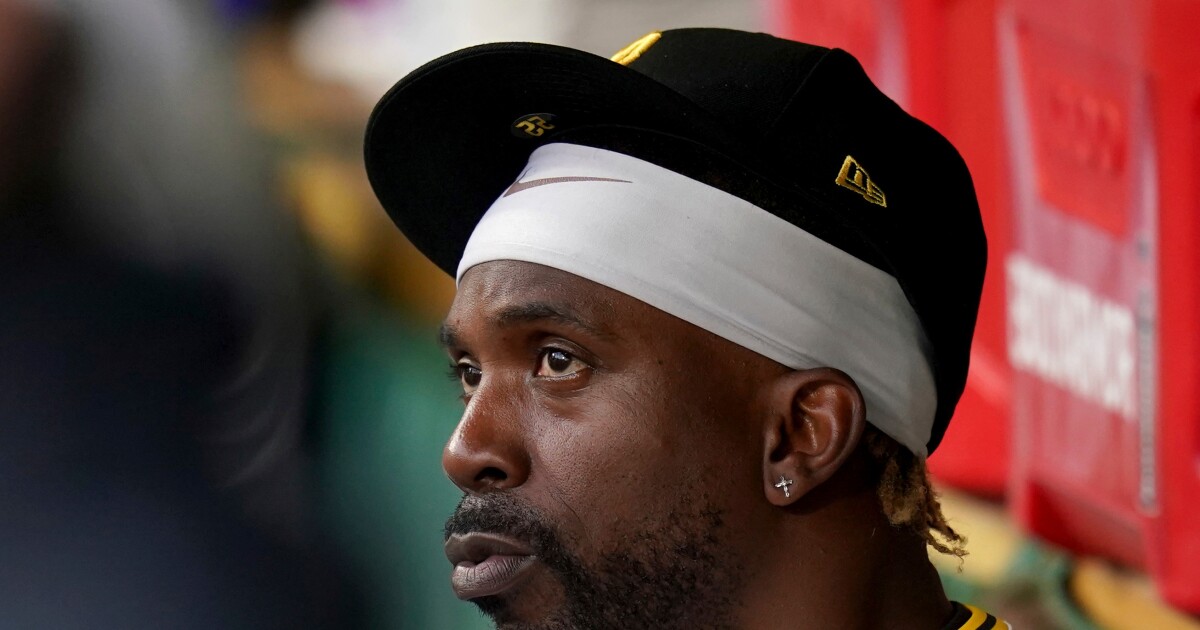Arizona
Arizona lawmakers face big deficit due mostly to massive tax cut and school voucher expansion

PHOENIX (AP) — Democratic Gov. Katie Hobbs and the Republican-controlled Arizona Legislature return to the state Capitol on Monday with a nearly $1 billion problem on their hands.
Less than six months after they celebrated passing a bipartisan budget, lawmakers face a steep deficit due mostly to plummeting revenues from a massive tax cut that took full effect last year and skyrocketing costs from a school voucher program expansion.
A year ago, the state had a budget surplus of $1.8 billion. Now, it has a shortfall of about $400 million for the current fiscal year and another $450 million shortfall in the following year. Budget analysts say the shortfall will likely grow when the state’s next revenue forecast is released later this month.
The tax cut approved by legislators in 2021 and signed into law by Hobbs’ Republican predecessor, Gov. Doug Ducey, had eliminated the state’s graduated income tax and replaced it with a flat tax, which was phased in and took full effect during 2023.
From July through November, Arizona saw a decrease of over $830 million in revenues from income taxes, marking a nearly 30 percent decline.
The voucher program lets parents use public money for private-school tuition and other education costs. It started in 2011 as a small program for disabled children but was expanded repeatedly over the next decade until it became available to all students in 2022.
Originally estimated to cost $64 million for the current fiscal year, budget analysts now say it could top $900 million.
Stan Barnes, a political consultant in Phoenix and a former Republican state lawmaker, said it’s hard to say how legislators and Hobbs will confront the growing costs, but he predicted they’ll be forced to compromise.
“It’s going to be one of the most difficult exercises in recent memory, given the Grand Canyon-sized space between the Republican legislature and the Democratic governor,” Barnes said. Sen. John Kavanagh, chair of the Senate Appropriations Committee, disputed a budget crisis, saying Arizona could balance its books by postponing building projects, having state agencies return unspent state money and other measures.
“In an $18 billion budget, it’s easily manageable,” Kavanagh said. Rep. Oscar De Los Santos, a Democrat who serves as assistant minority leader in the Arizona House, blames Republican policies for the budget problems. The tax cut likely won’t be repealed, he said, but he believes the voucher program can be limited.
“This is a self-created, self-inflicted wound that the Republicans have caused,” he said. “Now we don’t have the resources we need to tackle the important issues in our state.”
The income tax cut championed by Ducey had eliminated the state’s previous graduated tax scale, which started at 2.59% and had a maximum of 4.5% for income over $159,000 a year for a single person. All taxpayers now pay a maximum of 2.5%.
Democrats have criticized the cut as a windfall for the wealthy, while offering fewer benefits for most taxpayers. Supporters have trumpeted the overall effects of the cut on the state’s economy and said citizens want to see lower taxes.
The changes in Arizona’s voucher program led to a sharp increase in the number of participants. Before the expansion, nearly 12,000 students — including disabled children, those living on Native American reservations and children in low-performing schools — took part in the program.
Now that all students can apply for the vouchers, nearly 73,000 students participate. The average scholarship is roughly $9,700 per student.
Critics say the expansion is a drain on the state’s coffers, while backers say the expansion lets parents choose the best school for their children.
About 75% of the students who got vouchers immediately after the program was expanded had no prior record of attending an Arizona public school, according to Department of Education data reported in 2022. That suggests the state subsidies went largely to students whose families already were paying private school tuition.
Water issues will also be key for the Legislature amid a severe long-term drought in the arid southwestern state. Concerns are growing in Arizona about shortages from the Colorado River system, which provides the state with about 40% of its water, and about shrinking supplies of groundwater and regulation in rural areas.
Hobbs has cast drought as the “challenge of our time.” Her administration has limited housing development in parts of metro Phoenix over concerns about water canceled state land leases that for years gave a Saudi-owned farm nearly unfettered access to pump groundwater.
On the voucher program, Hobbs vowed to bring accountability when she began her term a year ago as the first Democratic governor since 2009. Despite her criticism, the budget proposals negotiated by Hobbs last year didn’t include any caps on the expansion, leading Democratic lawmakers to express dissatisfaction with the lack of action.
She’s now proposing changes like requiring private schools that receive voucher funding have minimum education requirements for teachers and that students attend public school for 100 days before becoming eligible for the vouchers. She reiterated a desire for accountability and transparency in the program.
“Arizonans deserve to know their money is being spent on educating students, not on handouts to unaccountable schools and unvetted vendors for luxury spending,” like ski resort passes and pianos, she said.
Kavanagh said controls to the Empowerment Scholarships Account voucher program — such as Hobbs’ idea to require fingerprinting for teachers at private schools that receive tax dollars — make sense. But he believes the program will remain on the books.
“We are not getting rid of ESAs,” Kavanagh said.
Copyright 2024 The Associated Press. All rights reserved.

Arizona
Haitian man detained at Arizona ICE facility dies in US custody, brother says

FLORENCE, AZ (AP) — A Haitian man confined at an Arizona immigration detention center for months died at a hospital Monday after a tooth infection was left untreated, the man’s brother said Wednesday.
Emmanuel Damas, 56, told medical personnel at the Florence Correctional Center that he had a toothache in mid-February, but he was not sent to a dentist, said Damas’ brother, Presly Nelson.
Nelson believes the staff at the facility did not take his brother’s complaints seriously, even though it was a treatable condition. Nelson said he would expect such a death in countries with less access to health care, but not in the United States.
“As a country — I’m an American now — I think we can do better than that,” Nelson said.
Damas is among at least nine people who have died in Immigration and Customs Enforcement custody this year.
The Department of Homeland Security did not immediately respond to emails seeking comment. ICE had said it hoped to issue a news release Wednesday.
Earlier Wednesday, ICE officials announced the death of Mexican national Alberto Gutierrez-Reyes, who had been in a California ICE detention center and died in the hospital Feb. 27 after reporting chest pain and shortness of breath.
Chandler City Council member Christine Ellis, a Haitian American who is a registered nurse, said she was contacted by Damas’ family after his death.
“As a medical person, I am absolutely appalled that there were medical-licensed people that were working there and allowed those things to happen,” Ellis said. “It does not make sense to me.”
A report from the Maricopa County Medical Examiner’s Office listed Damas’ cause of death as “pending” as of Wednesday.
Damas was taken into ICE custody in September and was soon transferred to the medium-security Florence Correctional Center, where he was held for several months, including after his asylum application was denied, Ellis said.
CoreCivic, a for-profit corrections company that runs the Florence facility, did not respond to emails seeking comment.
See a spelling or grammatical error in our story? Please click here to report it.
Do you have a photo or video of a breaking news story? Send it to us here with a brief description.
Copyright 2026 The Associated Press. All rights reserved.
Arizona
3 men sentenced in Arizona for multi-million dollar scam against Amazon

PHOENIX (AZFamily) — Three Valley men have been sentenced for their roles in what prosecutors described as a “sophisticated fraud scheme” against an online shopping giant.
In a news release, the U.S. Attorney’s Office said Mughith Faisal, 29, of Glendale, was sentenced on Feb. 5 to 18 months in prison. His brother, Basheer Faisal, 28, of Glendale, was also recently ordered to spend 18 months in prison.
The feds said a third defendant in the case, Abdullah Alwan, 28, of Surprise, was sentenced to six months in prison after the trio pleaded guilty to wire fraud.
Prosecutors said the three were also each ordered to pay $1.5 million in restitution to Amazon.
According to federal officials, Alwan worked in Amazon’s logistics division and left the company in 2021 when he reportedly used his knowledge to manipulate rates for transportation deliveries assigned to Amazon’s third-party carriers.
The feds said Basheer and Mughith Faisal used “Blue Line Transport” to knowingly get to increased transport rates that Alwan would then input into Amazon’s system, ripping them off out of $4.5 million.
The FBI’s Phoenix Division helped in the investigation, which was then prosecuted by the U.S. Attorney’s Office for the District of Arizona.
See a spelling or grammatical error in our story? Please click here to report it.
Do you have a photo or video of a breaking news story? Send it to us here with a brief description.
Copyright 2026 KTVK/KPHO. All rights reserved.
Arizona
Arizona Lottery Mega Millions, Pick 3 results for March 3, 2026

Odds of winning the Powerball and Mega Millions are NOT in your favor
Odds of hitting the jackpot in Mega Millions or Powerball are around 1-in-292 million. Here are things that you’re more likely to land than big bucks.
The Arizona Lottery offers multiple draw games for those aiming to win big.
Here’s a look at Tuesday, March 3, 2026 results for each game:
Winning Mega Millions numbers
07-21-53-54-62, Mega Ball: 16
Check Mega Millions payouts and previous drawings here.
Winning Pick 3 numbers
2-0-8
Check Pick 3 payouts and previous drawings here.
Winning Fantasy 5 numbers
02-05-18-27-41
Check Fantasy 5 payouts and previous drawings here.
Winning Triple Twist numbers
11-14-17-19-23-24
Check Triple Twist payouts and previous drawings here.
Feeling lucky? Explore the latest lottery news and results
What time is the Powerball drawing?
Powerball drawings are at 7:59 p.m. Arizona time on Mondays, Wednesdays and Saturdays.
How much is a Powerball lottery ticket today?
In Arizona, Powerball tickets cost $2 per game, according to the Arizona Lottery.
How to play the Powerball
To play, select five numbers from 1 to 69 for the white balls, then select one number from 1 to 26 for the red Powerball.
You can choose your lucky numbers on a play slip or let the lottery terminal randomly pick your numbers.
To win, match one of the 9 Ways to Win:
- 5 white balls + 1 red Powerball = Grand prize.
- 5 white balls = $1 million.
- 4 white balls + 1 red Powerball = $50,000.
- 4 white balls = $100.
- 3 white balls + 1 red Powerball = $100.
- 3 white balls = $7.
- 2 white balls + 1 red Powerball = $7.
- 1 white ball + 1 red Powerball = $4.
- 1 red Powerball = $4.
There’s a chance to have your winnings increased two, three, four, five and 10 times through the Power Play for an additional $1 per play. Players can multiply non-jackpot wins up to 10 times when the jackpot is $150 million or less.
Are you a winner? Here’s how to claim your lottery prize
All Arizona Lottery retailers will redeem prizes up to $100 and may redeem winnings up to $599. For prizes over $599, winners can submit winning tickets through the mail or in person at Arizona Lottery offices. By mail, send a winner claim form, winning lottery ticket and a copy of a government-issued ID to P.O. Box 2913, Phoenix, AZ 85062.
To submit in person, sign the back of your ticket, fill out a winner claim form and deliver the form, along with the ticket and government-issued ID to any of these locations:
Phoenix Arizona Lottery Office: 4740 E. University Drive, Phoenix, AZ 85034, 480-921-4400. Hours: 7:30 a.m. to 5 p.m. Monday through Friday, closed holidays. This office can cash prizes of any amount.
Tucson Arizona Lottery Office: 2955 E. Grant Road, Tucson, AZ 85716, 520-628-5107. Hours: 7:30 a.m. to 5 p.m. Monday through Friday, closed holidays. This office can cash prizes of any amount.
Phoenix Sky Harbor Lottery Office: Terminal 4 Baggage Claim, 3400 E. Sky Harbor Blvd., Phoenix, AZ 85034, 480-921-4424. Hours: 8:30 a.m. to 5 p.m. Monday through Sunday, closed holidays. This office can cash prizes up to $49,999.
Kingman Arizona Lottery Office: Inside Walmart, 3396 Stockton Hill Road, Kingman, AZ 86409, 928-753-8808. Hours: 8 a.m. to 8 p.m. Monday through Friday, 8:30 a.m. to 5 p.m. Saturday and Sunday, closed holidays. This office can cash prizes up to $49,999.
Check previous winning numbers and payouts at https://www.arizonalottery.com/.
This results page was generated automatically using information from TinBu and a template written and reviewed by an Arizona Republic editor. You can send feedback using this form.
-

 World1 week ago
World1 week agoExclusive: DeepSeek withholds latest AI model from US chipmakers including Nvidia, sources say
-

 Massachusetts1 week ago
Massachusetts1 week agoMother and daughter injured in Taunton house explosion
-

 Wisconsin4 days ago
Wisconsin4 days agoSetting sail on iceboats across a frozen lake in Wisconsin
-

 Maryland4 days ago
Maryland4 days agoAM showers Sunday in Maryland
-

 Florida4 days ago
Florida4 days agoFlorida man rescued after being stuck in shoulder-deep mud for days
-

 Denver, CO1 week ago
Denver, CO1 week ago10 acres charred, 5 injured in Thornton grass fire, evacuation orders lifted
-

 Massachusetts2 days ago
Massachusetts2 days agoMassachusetts man awaits word from family in Iran after attacks
-

 Oregon6 days ago
Oregon6 days ago2026 OSAA Oregon Wrestling State Championship Results And Brackets – FloWrestling





















